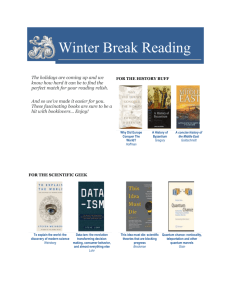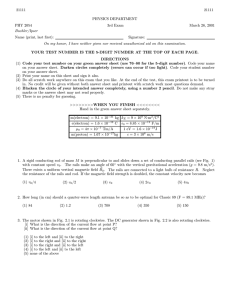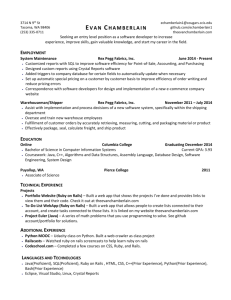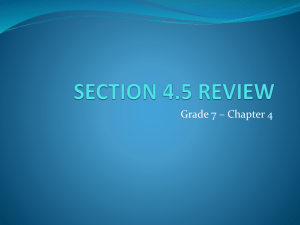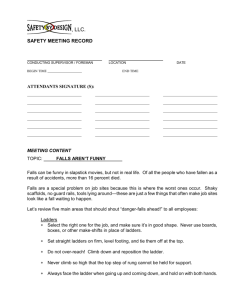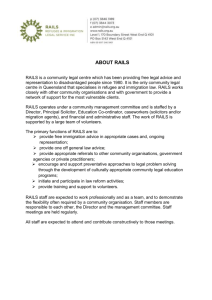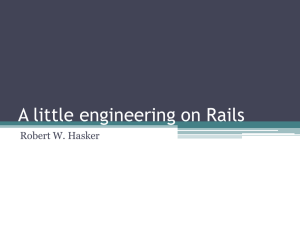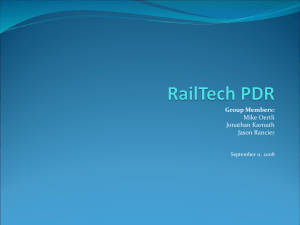Document 13512520
advertisement
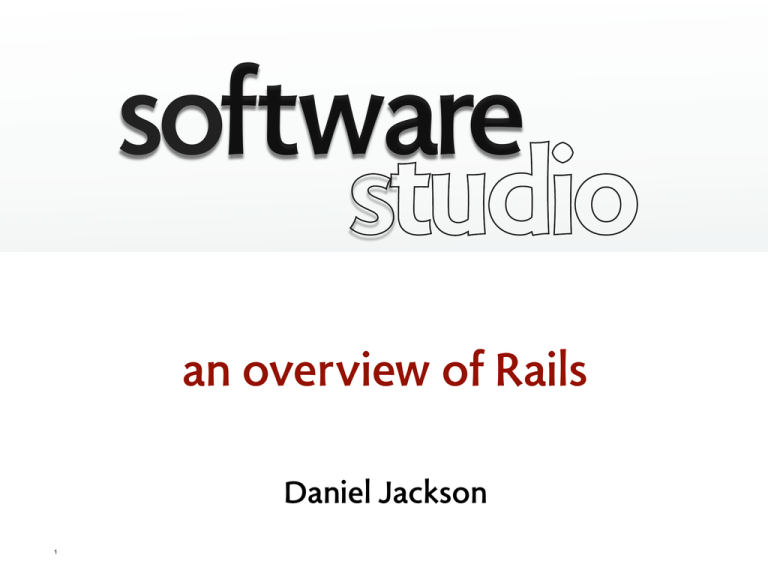
software studio an overview of Rails Daniel Jackson 1 what is Rails? an application framework › full stack: web server, actions, database a programming environment › eg, rake (like make), unit testing an open-source community › many plugins 2 history of Rails genesis in Basecamp › project management tool by 37signals release › open source in 2004 › shipped with OS X 10.5 in 2007 › Rails 3.1 in 2011, merging with Merb Screenshot of David Heinemeier's bio removed due to copyright restrictions. See his website for the image. 3 Rails’s creator, describing himself with the typical modesty of the nouveau riche convention over configuration the key idea behind Rails › database table: users › model class: User › file: /app/models/user.rb what’s the alternative? › configuration files 4 technical features Rails supports › JQuery as standard JS library › Sass for CSS templating › ERB or HAML for HTML templating › MySQL or PostgreSQL database support for Rails from › web servers such as Apache › hosting services such as Heroku 5 model-driven development if you type this... Rails generates these... 6 Rails snags: reliance on strings conventions rely on strings used for names › pluralization: cute but ultimately painful › name munging, eg for path helpers alpha equivalence fails in Rails › in lambda calculus, λx.x = λy.y › “rename variable” refactoring if you code this route: you get these functions: 7 Original question asked by Donald Hughes on Stack Overflow. 8 Original question asked by Sasha on Stack Overflow. 9 10 Original question asked by salt.racer on Stack Overflow. Rails snags: too much magic implicit calls › bad for non-experts › bad for tools missing specs › not clear what’s going on › magic changes over time an example › which fields in forms are logged? › next slide... 11 12 Pull request by jeyb on GitHub. in summary... rich environment many libraries code generation helpful community friendly online guides invisible magic quirky conventions no static checking masking of failures 13 ? an easy life? or a deadly cocktail? 14 actually, neither every tool has benefits & limitations › just need to recognize them › & work around the limitations also, realize that context matters Rails is great for › rapid development › data intensive apps with rich UIs not so suitable for › critical systems (eg, banking) › specialized data (eg, web searching) 15 MIT OpenCourseWare http://ocw.mit.edu 6.170 Software Studio Spring 2013 For information about citing these materials or our Terms of Use, visit: http://ocw.mit.edu/terms.
